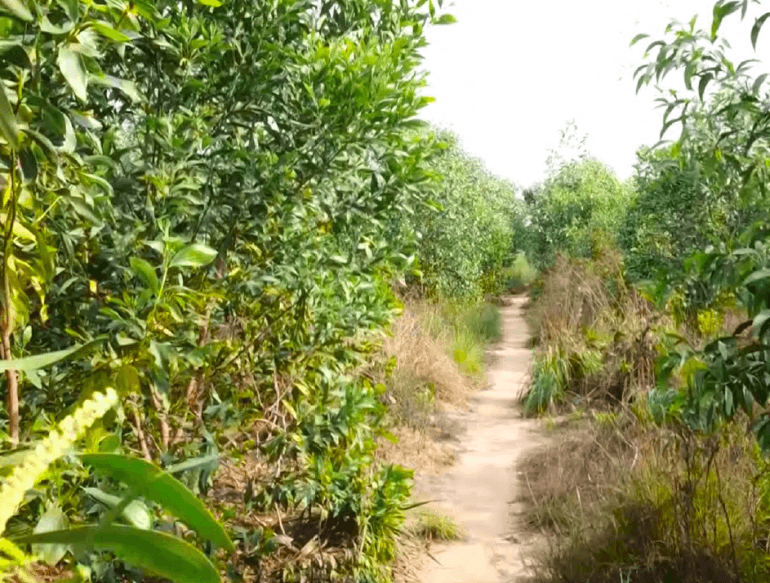

31.03.2023
Since June 2018, FRM has been leading the FRMi/WWC (Wildlife Works) Consortium as the delegated project manager of the integrated REDD+ project in the Maï-Ndombe (PIREDD/MND). With one year left in the project, here is an update on its activities.

The objective of this project is to improve the living conditions of rural populations through activities that promote improved management of forest landscapes and reduce greenhouse gas emissions from deforestation and forest degradation. The project is being implemented in the Maï-Ndombe Province, 200 km from Kinshasa, in the territories of Inongo, Kiri, Kutu and Oshwe (former Maï-Ndombe district).
This will be done in several ways:
1) Strengthening the capacities of decentralized and deconcentrated technical services;
2) Strengthen the capacities of local communities and territorial entities for territorial management;
3) Support the drafting and implementation of Sustainable Development Plans and Natural Resource Management Plans;
4) Strengthen the downstream part of the value chains;
5) Facilitate and secure the movement of goods and people through structuring investments;
6) Support the most vulnerable populations;
7) Raise awareness of birth spacing.
The expected results by May 2024 are as follows:
The provinces of the DRC were not very involved in the management of the natural environment, and the Maï-Ndombe is no exception. The project is therefore responsible for forming 600 Local Development Committees (LDCs). After the awareness campaign of the first phase, 480 LDCs were trained. The objective of Phase 2, which began in October 2022, is to continue this work for the remaining 120 Territories. In addition to the issue of good governance of natural resources, the project is also working to strengthen the capacity of technical services: several services are involved, mainly agriculture, but also the environment, rural development, land affairs and land use planning.
Concerning agriculture, the traditional technique for farming is slash-and-burn agriculture. It consists of burning a small piece of primary forest or fallow land each year to grow agricultural products, mainly food and cash crops. A field is cultivated for about two years. With the strong demographic growth, the forest tends to disappear. Four lines of work have been developed to reduce this impact on the forest: the dissemination of adapted seeds (cassava, cocoa, oil palm), the introduction of perennial cash crops, the development of agriculture in the savannah zone, and the introduction of a crop with high economic potential (chili pepper).
Social aspects also play an important role in the implementation of the project. The indigenous populations of the DRC are considered vulnerable and special attention must be paid to them. This is why the project's activities seek as often as possible to integrate these populations among the nurserymen and planters. In addition, economic micro-projects are exclusively dedicated to them. Following consultations, 6 micro-projects were identified in Phase 1 and NGOs were selected to implement them. These micro-projects have yet to be finalized and mainly concern the breeding of small livestock. 4 new projects are planned for Phase 2 of the project.
Download the project brochure for more details (in french)
This month, the PIREDD project publishes a newsletter on the results of phase 1 and the expectations of phase 2.
Read the PIREDD Maï-Ndombe newsletter of March 2023 (in french)
Films on the project are available on FRMi's YouTube channel.
To learn more, you can also read this article on the World Bank website.